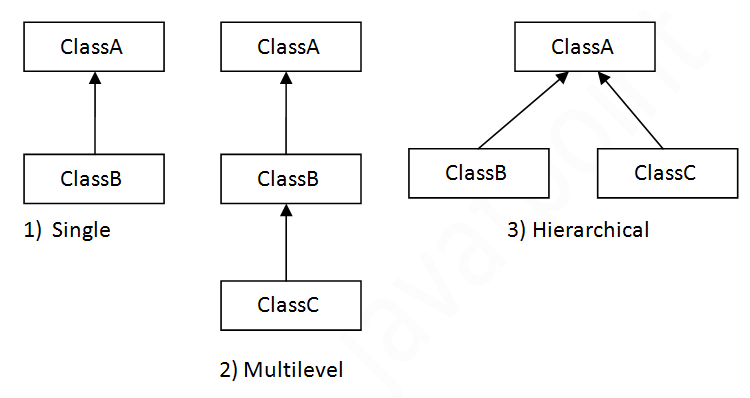Inheritance Notes
INHERITANCE :
- Inheritance in Java is a mechanism in which one object acquires all the properties and behaviors of a parent object. It is an important part of OOPs (Object Oriented programming system).
- The idea behind inheritance in Java is that you can create new classes that are built upon existing classes. When you inherit from an existing class, you can reuse methods and fields of the parent class. Moreover, you can add new methods and fields in your current class also.
- Inheritance represents the IS-A relationship which is also known as a parent-child relationship.
Why use inheritance in java
- For Method Overriding (so runtime polymorphism can be achieved).
- For Code Reusability.
- The extends keyword indicates that you are making a new class that derives from an existing class. The meaning of "extends" is to increase the functionality.
- In the terminology of Java, a class which is inherited is called a parent or superclass, and the new class is called child or subclass.
Types of inheritance in java
- On the basis of class, there can be three types of inheritance in java: single, multilevel and hierarchical.
- In java programming, multiple and hybrid inheritance is supported through interface only. We will learn about interfaces later.

When one class inherits multiple classes, it is known as multiple inheritance. For Example:

Comments
Post a Comment